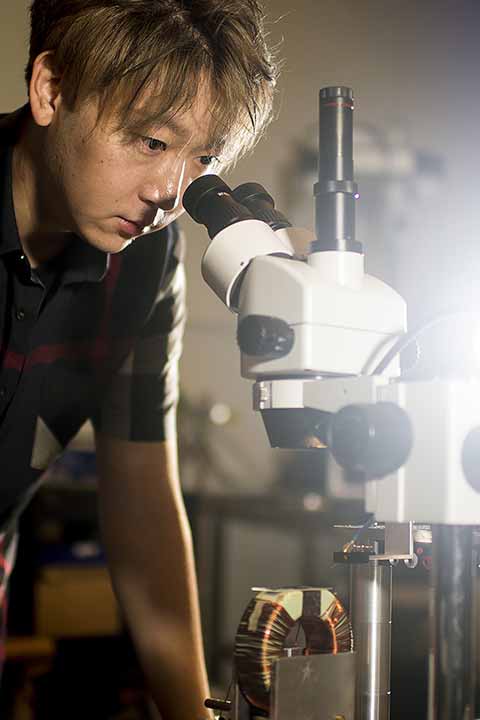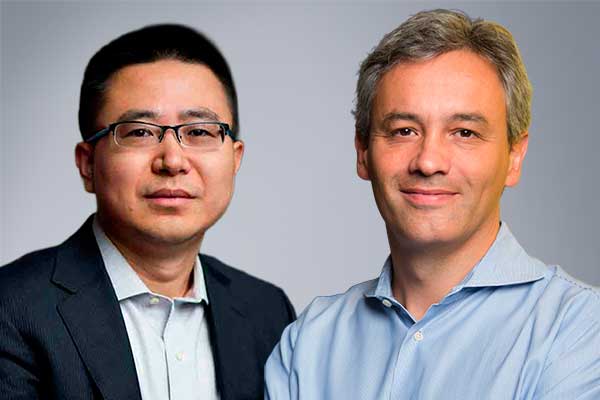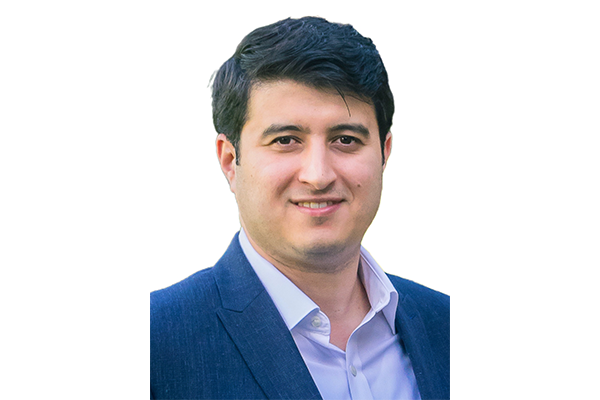
Research
Collaborative and Interdisciplinary Research
The Electrical and Computer Engineering department nourishes a vibrant research environment motivated by our dedicated faculty and graduate students. Our research programs are funded by many government agencies, including the National Science Foundation (NSF), the National Institute of Health (NIH), the Office of Naval Research (ONR), the Air Force Office of Scientific Research (AFOSR), Defense Advanced Research Projects Agency (DARPA), Department of Homeland Security, and numerous local and national industries.
Research activities at the ECE Department can be classified by research areas and by research centers and institutes. The department offers eight research areas of focus and is either the lead or partner of nine research centers and institutes.
Faculty also conduct research in their labs. View faculty profiles to learn about their research, including work being conducted in their laboratories. Also, view our Annual Reports and college-wide research efforts.
Quick Facts
external research awards (FY2024)
tenured/tenure-track faculty
research centers and institutes (leading or affiliated with)
Research Strengths
Our research strengths encompass the full gamut of cutting-edge ECE technologies: embedded systems and internet-of-things, robotics and cyber-human systems, networking (mobile/wireless as well as the Internet of the future), big data analytics and machine learning. Northeastern’s historic strengths in ECE include communications and digital signal processing, power and control systems, power electronics, RF/microwave magnetic materials, device technologies, and computer engineering.
Biomedical Research and Collaborations
Northeastern ECE faculty are engaged in a range of biomedical projects in collaboration with fellow world-class researchers in the Boston-area medical community. These projects span all disciplinary areas and include MEMS/NEMS sensors for biological detection; applications of wireless technology in biomedical implants; biomedical imaging hardware and signal processing; brain-computer interface technologies; disease detection and tracking; and many more.
Recent News

Fu and Melodia Selected as ACM Fellows
ECE Distinguished/Khoury Professor Yun Raymond Fu and William Lincoln Smith Professor Tommaso Melodia were named Fellows of the Association for Computing Machinery. Fu for contributions to representation learning, computer vision, face and gesture recognition and Melodia for contributions to open radio access network architectures and AI-native wireless networks.

Patent for Advanced Subharmonic Identification Tags
ECE Associate Professor Cristian Cassella was awarded a patent for “Ultra-high-frequency subharmonic tags for passive and far-field identification.”

Patent for New Methods to Reduce Power Consumption in Electronics
ECE Associate Professor Aatmesh Shrivastava was awarded a patent for “Ultra-low power timing circuit with PLL locking.”

Showcasing Next-Generation Flexible and Hybrid Electronics Manufacturing with AI and Digital Twins at FLEX 2026
ECE Assistant Professor Benyamin Davaji, alongside Haiyang Yun, PhD’28, electrical engineering, will instruct a professional course titled “Digital Twins for Printed Electronics: How Can AI Learn FHE Printing” at FLEX 2026, the premier international conference for Flexible and Hybrid Electronics (FHE), taking place in Phoenix, Arizona on February 24, 2026.